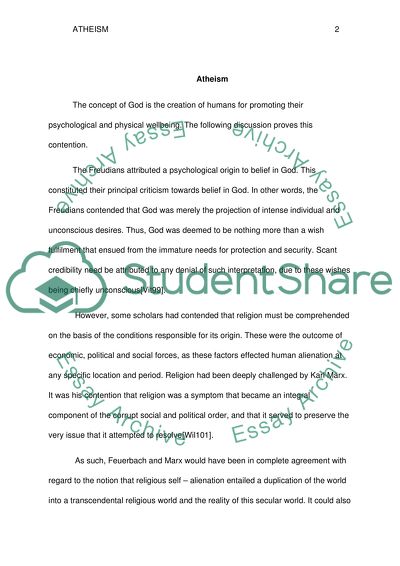Cite this document
(“Atheism Research Paper Example | Topics and Well Written Essays - 1500 words”, n.d.)
Atheism Research Paper Example | Topics and Well Written Essays - 1500 words. Retrieved from https://studentshare.org/philosophy/1488897-atheism
Atheism Research Paper Example | Topics and Well Written Essays - 1500 words. Retrieved from https://studentshare.org/philosophy/1488897-atheism
(Atheism Research Paper Example | Topics and Well Written Essays - 1500 Words)
Atheism Research Paper Example | Topics and Well Written Essays - 1500 Words. https://studentshare.org/philosophy/1488897-atheism.
Atheism Research Paper Example | Topics and Well Written Essays - 1500 Words. https://studentshare.org/philosophy/1488897-atheism.
“Atheism Research Paper Example | Topics and Well Written Essays - 1500 Words”, n.d. https://studentshare.org/philosophy/1488897-atheism.


